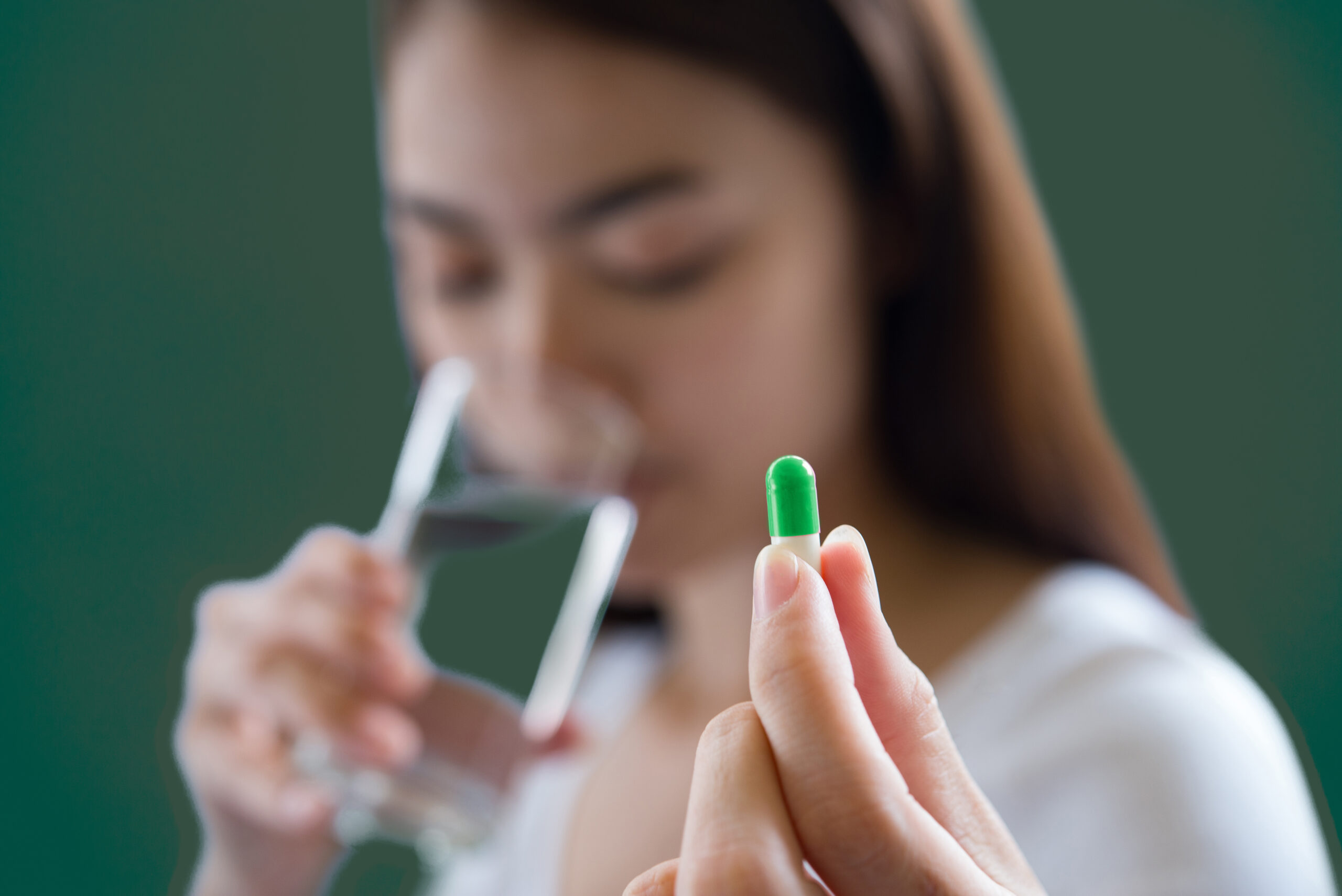APIVault
Gastro-resistant enteric encapsulation for oral delivery of biopharmaceuticals and sensitive pharmaceuticals

The medical need
Oral delivery is the most opportune route for patients to take biopharmaceuticals and sensitive pharmaceuticals.
There is a medical need for safe, reliable, and convenient delivery of pharmaceuticals to the intestine.
However, these compounds are vulnerable to low pH and protease digestion in the stomach. They must be protection by a gastro-resistant encapsulation to pass the stomach without losing efficacy.
Encapsulations with safe bio-inactive materials
With the market for oral biopharmaceuticals growing strongly there is a solid commercial need for a gastro-resistant enteric encapsulation made from safe bio-inactive materials.
The range of APIVault encapsulations protect during stomach passage and ensure targeted release either in the small intestine or in the colon.
The long-standing benchmarks for gastro-resistant encapsulations for sensitive pharmaceuticals are the polymethacrylate based coatings. However, the methyl acrylate/ethyl acrylate copolymers have major clinical weaknesses.
- There is a very restricted design space for their pH dependent dissolution profiles.
- There are scientific reports of drugs not released in the intestine as intended.
- Polymethacrylates show signs of unwanted bioactivity. Ethyl acrylate was observed by the FDA for years after findings of carcinogenicity on forestomach epithelium in rats.
Their potential bioactivity makes them less desirable for use in pharmaceuticals.
EMA and FDA only approve intake of polymethacrylates in very limited amounts and polymethacrylates cannot be used in “over the counter” products.

Examples of orally delivered biopharmaceuticals
Rybelsus® (semaglutide) tablets from Novo Nordisk is an example of an emerging orally delivered biopharmaceutical. More orally delivered biopharmaceuticals are expected to be developed in the coming years.
Irritable bowel syndrome (IBS) is a common disorder that affects the gastrointestinal tract. IBS is a very common disorder that can be treated with orally delivered peptide drug Linaclotide and similar drugs. Other examples of potentially orally delivered peptides are Glutathione, Desmopressin, Cyclosporine, Colistin, Vancomycin and Plecanatide and many others with high therapeutic benefits on the market. Such peptides can potentially be developed into new and better versions with an APIVault encapsulation.
A high number of peptides for oral delivery including drugs for the treatment of IBS are currently in development.
Crohn’s disease is a lifelong condition where parts of the digestive system become inflamed. Biological medicines used for Crohn’s disease like Adalimumab, infliximab, vedolizumab and ustekinumab can potentially be developed into orally delivered biopharmaceuticals with an APIVault encapsulation.
Sensitive pharmaceuticals like proton pump inhibitors Omeprazole, Pantoprazole or Lansoprazole or CNS stimulants like Amphetamine and Dextroamphetamine could benefit from an improved enteric encapsulation. Also, oral administration of non-replicating viral vector vaccines is an emerging approach to vaccination that requires an enteric encapsulation.
